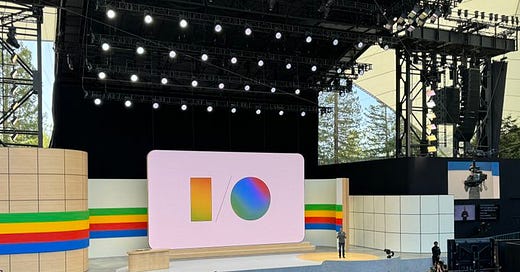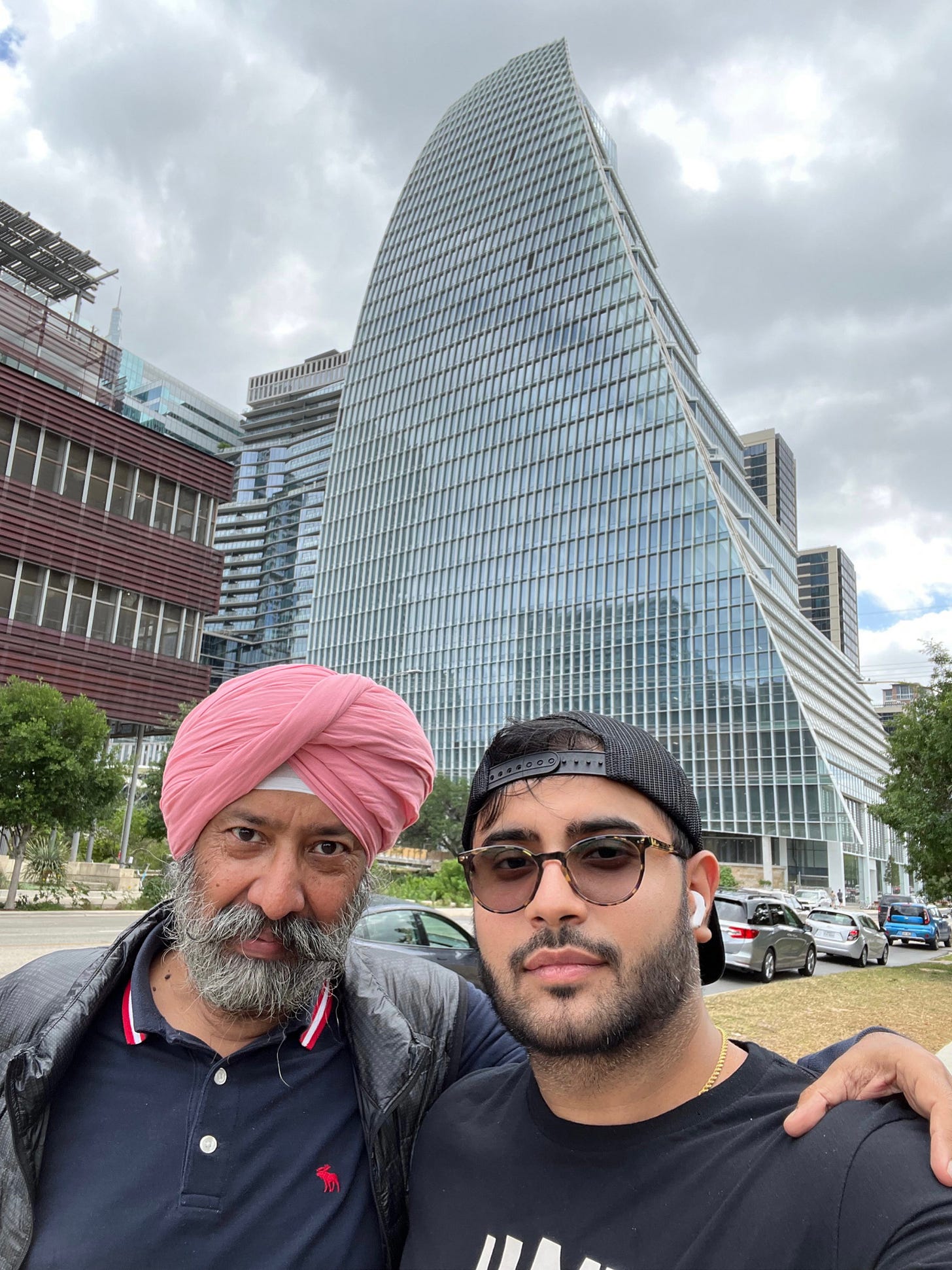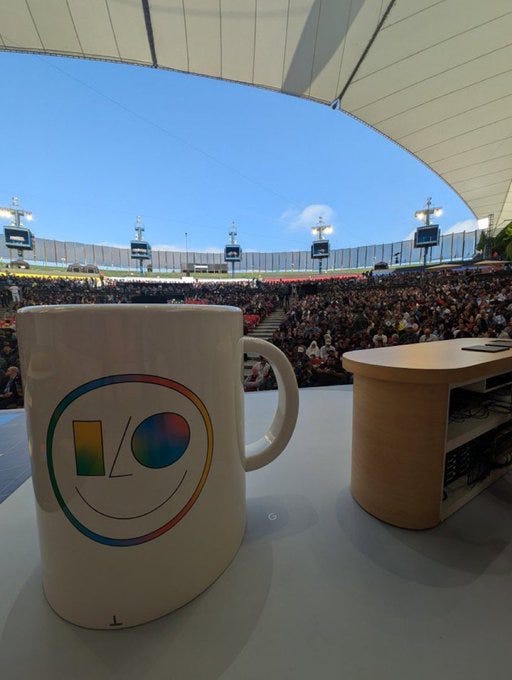Google I/O Kicks off at Mountain View, California
Google Unveils Revolutionary AI Enhancements at I/O Conference. Live reporting from the conference venue.
Introduction
At the annual I/O conference, which kicked off this morning at its Mountain View, California headquarters, Google announced significant advancements in artificial intelligence, including AI-generated search results and a new AI video tool called Veo. These changes promise to enhance user experience and redefine how we interact with technology. Co-authored by Bilawal Sidhu, our Honorary Tech Adviser and an ex-Googler attending the event as a special invitee, this article delves into the key highlights and their potential impact on consumers.
AI Answers in Search
In a groundbreaking move, Google will now display AI-generated answers at the top of search results. This shift marks the most significant change to Google’s search engine in over two decades. Instead of merely presenting links or snippets, the AI will summarize websites and provide comprehensive answers to queries. This feature, already tested for a year, will be available to all users in the United States this week and globally by the end of the year.
Despite concerns from publishers about potential traffic loss, Google assures that it remains committed to supporting the open web. Users will benefit from faster, more accurate information retrieval, although the option to disable AI answers will not be available.
Google’s AI Model: Gemini
Google showcased its enhanced AI model, Gemini, which rivals OpenAI’s GPT-4. Demonstrations included Gemini's ability to analyse real-world scenes through a phone camera and create detailed spreadsheets of book titles and authors from a visual scan. Additionally, Gemini can handle complex instructions, such as providing feedback on a thesis paper.
Gemini’s capabilities extend to identifying neighbourhoods through a window view and creatively naming a fictional band based on a visual prompt. Available to developers worldwide and premium AI app users, Gemini represents a significant leap in AI functionality and accessibility.
Project Astra and AI Agents
Google’s head of AI, Demis Hassabis, introduced "Project Astra," aimed at developing AI agents capable of performing tasks autonomously on the web. These agents could potentially book appointments, communicate with colleagues, and research dining options. This project underscores Google's ambition to create AI tools that seamlessly integrate into daily life, enhancing productivity and convenience.
Veo: The AI Video Tool
Google launched Veo, a new AI video-generating tool designed to compete with OpenAI’s Sora. Veo can produce high-definition videos longer than a minute, a notable achievement in the generative AI space. Collaborations with creators like DJ Marc Rebillet, Wyclef Jean, and Donald Glover highlight Veo’s creative potential. Additionally, Google introduced Imagen 3, an advanced image-generation tool that competes with OpenAI’s Dall-E 3, allowing users to generate realistic images from text prompts. As Bilawal Sidhu noted on his X account, “Google just dropped their response to OpenAI’s Sora — it’s called Veo and can generate 1080p video over 1 minute in length in a variety of styles.”
AI Integration in Work Apps
Google continues to enhance its productivity suite with AI features. New updates include email summarization, integration of document content into emails, and incorporation of spreadsheet data into presentations. The "help me write" feature will soon support Spanish and Portuguese, further broadening its usability. Gemini’s educational capabilities were also demonstrated, explaining complex concepts like the physics of a basketball in an accessible manner.
Summing Up
Google’s announcements at the I/O conference herald a new era of AI-driven innovation, promising greater value and enjoyment for consumers. The introduction of AI-generated search results, advanced AI models like Gemini, and creative tools like Veo reflect Google's commitment to leading the AI revolution. Just yesterday, OpenAI unveiled ChatGPT 4.o with attractive additional features, especially voice-driven capabilities. These are great days for developers and consumers alike. As these technologies become more integrated into everyday life, users can expect a richer, more efficient digital experience.
In summary, the rapid advancements from both Google and OpenAI signify a transformative period in AI development. With tools like Gemini, Veo, and ChatGPT 4.0, the future of technology looks incredibly promising, offering innovative solutions that enhance productivity, creativity, and everyday convenience for users worldwide.










Intersting work you did .I read all your articals .Proud of you . God bless you 🙏🙏